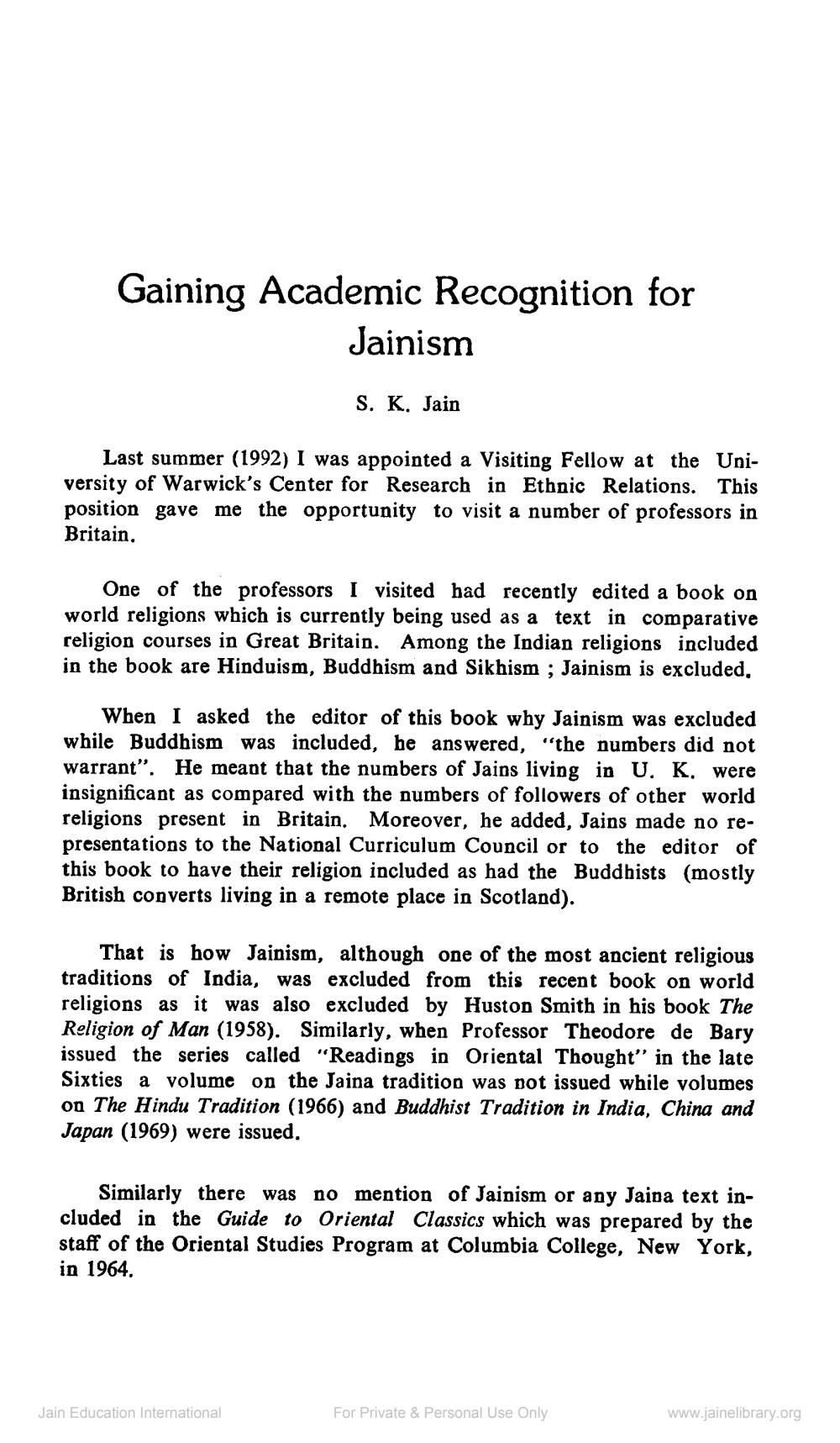________________
Gaining Academic Recognition for
Jainism
S. K. Jain
Last summer (1992) I was appointed a Visiting Fellow at the University of Warwick's Center for Research in Ethnic Relations. This position gave me the opportunity to visit a number of professors in Britain.
One of the professors I visited had recently edited a book on world religions which is currently being used as a text in comparative religion courses in Great Britain. Among the Indian religions included in the book are Hinduism, Buddhism and Sikhism ; Jainism is excluded,
When I asked the editor of this book why Jainism was excluded while Buddhism was included, he answered, "the numbers did not warrant". He meant that the numbers of Jains living in U. K, were insignificant as compared with the numbers of followers of other world religions present in Britain. Moreover, he added, Jains made no representations to the National Curriculum Council or to the editor of this book to have their religion included as had the Buddhists (mostly British converts living in a remote place in Scotland).
That is how Jainism, although one of the most ancient religious traditions of India, was excluded from this recent book on world religions as it was also excluded by Huston Smith in his book The Religion of Man (1958). Similarly, when Professor Theodore de Bary issued the series called "Readings in Oriental Thought" in the late Sixties a volume on the Jaina tradition was not issued while volumes on The Hindu Tradition (1966) and Buddhist Tradition in India, China and Japan (1969) were issued.
Similarly there was no mention of Jainism or any Jaipa text included in the Guide to Oriental Classics which was prepared by the staff of the Oriental Studies Program at Columbia College, New York, in 1964.
Jain Education International
For Private & Personal Use Only
www.jainelibrary.org




